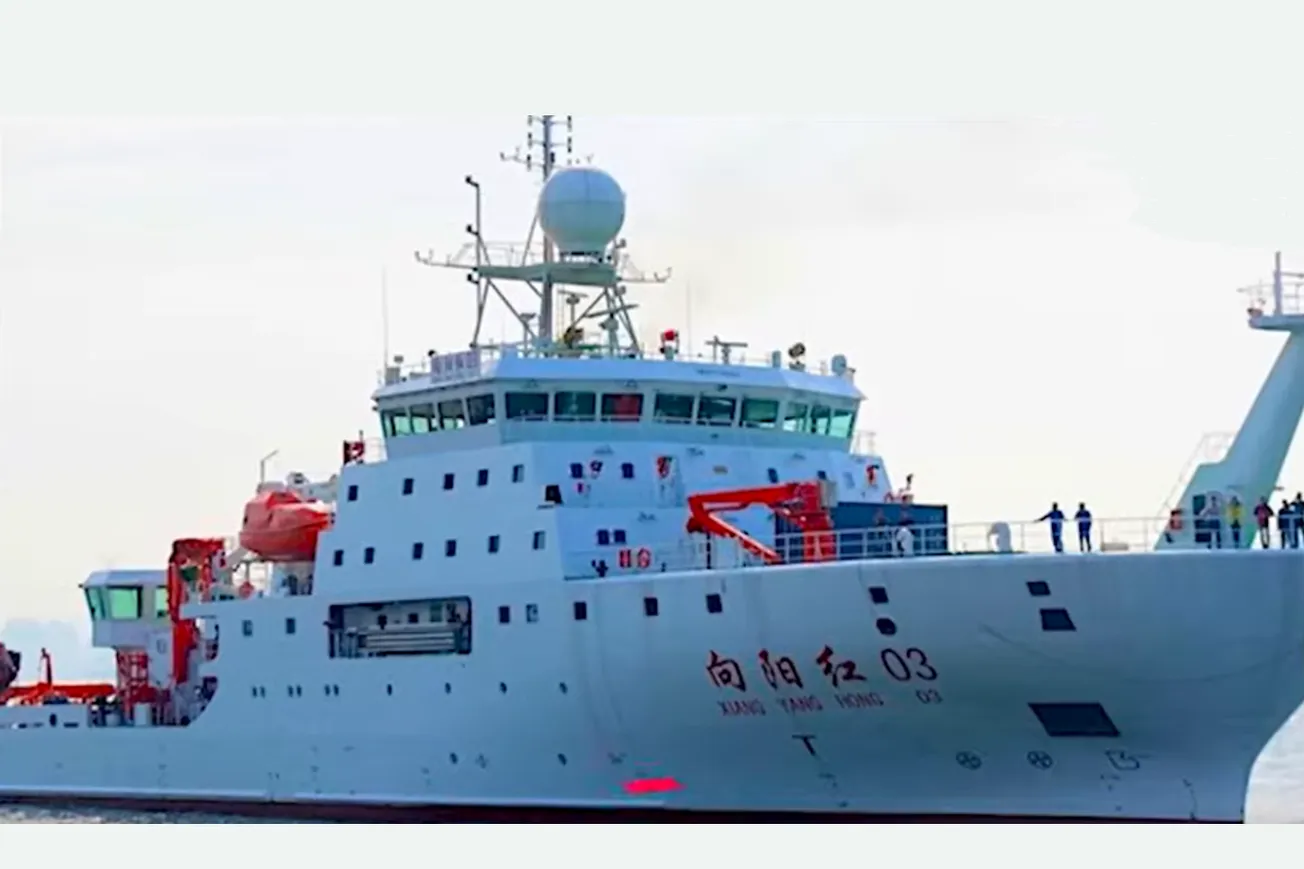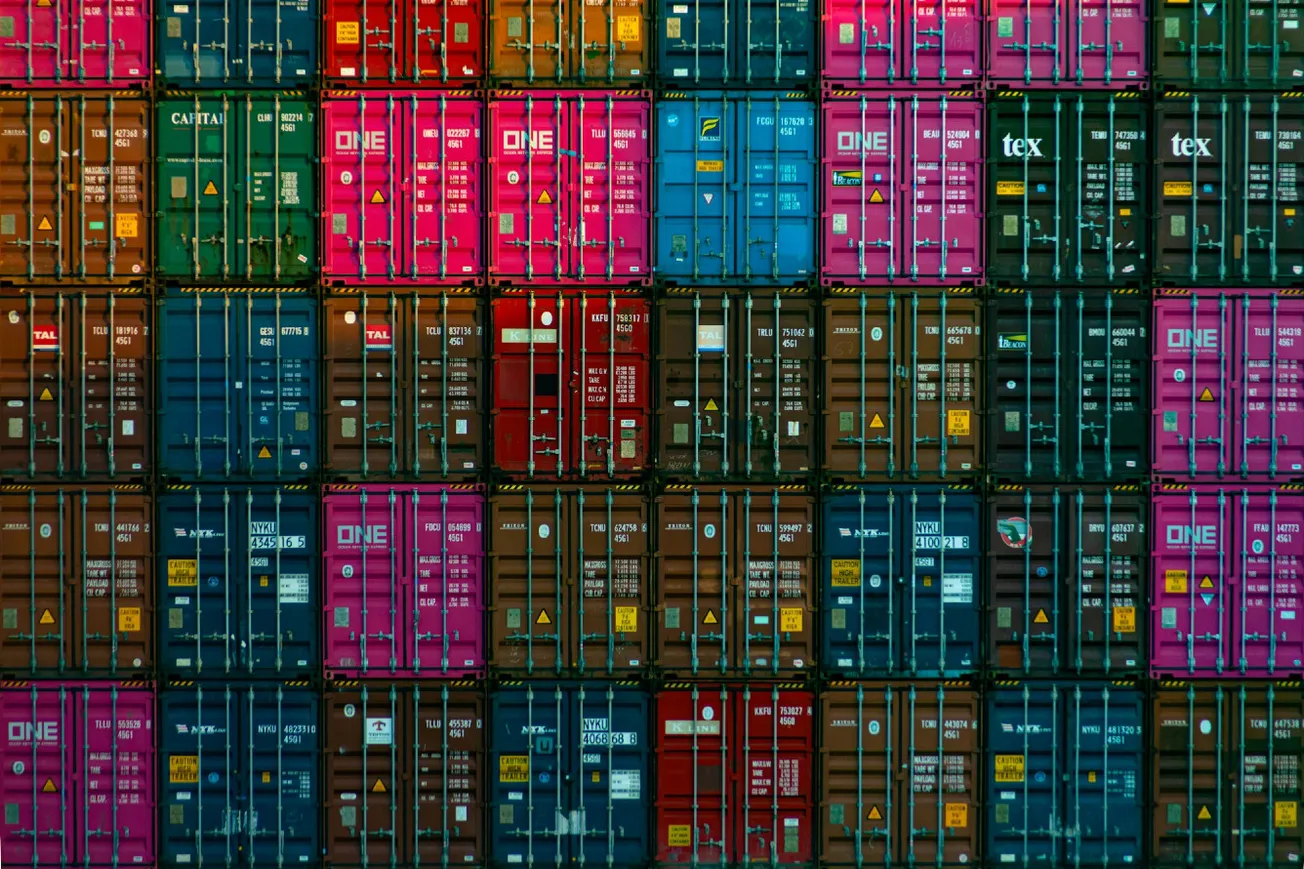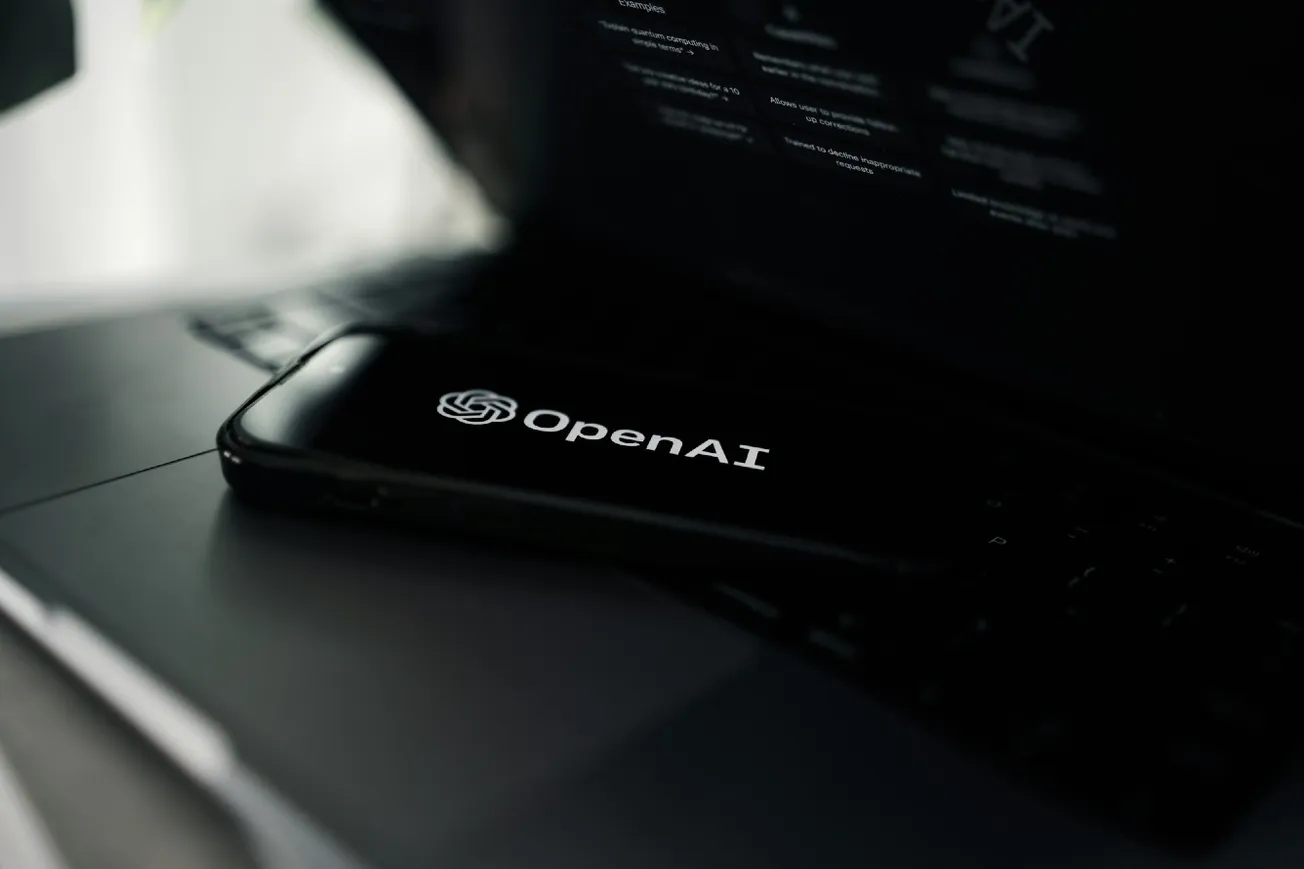A Chinese 'research' vessel docked in Male, the capital of Maldives, a couple of days ago once again raised concerns about Beijing's growing influence in the Indian Ocean Region (IOR).
The 4,300-ton Xiang Yang Hong 03 belongs to the Third Institute of Oceanography in China and is believed to report to the Ministry of Natural Resources. For over three weeks, the vessel has been surveying waters in the Indian Ocean, just outside the exclusive economic zones of India, the Maldives, and Sri Lanka, according to ship-tracking data. The civilian research vessel is said to be mapping the Indian Ocean floor and conducting mineral exploration, among other research activities.
The Indian Navy alleges that such information can be used for "dual" purposes. For example, charting underwater regions may also have military applications in terms of the ability to deploy or operate submarines.
According to a U.S.-based think-tank, Beijing uses a large fleet of such "scientific research" vessels to collect sensitive and strategic information. Beijing has denied the allegations, stating that its maritime vessels operate within the UN Convention on Law of the Seas (UNCLOS). China's assertion that its "scientific research activities in relevant waters are for peaceful purposes and aimed at contributing to humanity's scientific understanding of the ocean" does not hold much water.
According to ship-tracking websites, the Chinese vessel was "not visible on common tracking sites" for a while after it left port until reappearing near the Maldives archipelago, a highly unusual move for a non-military vessel in international waters.
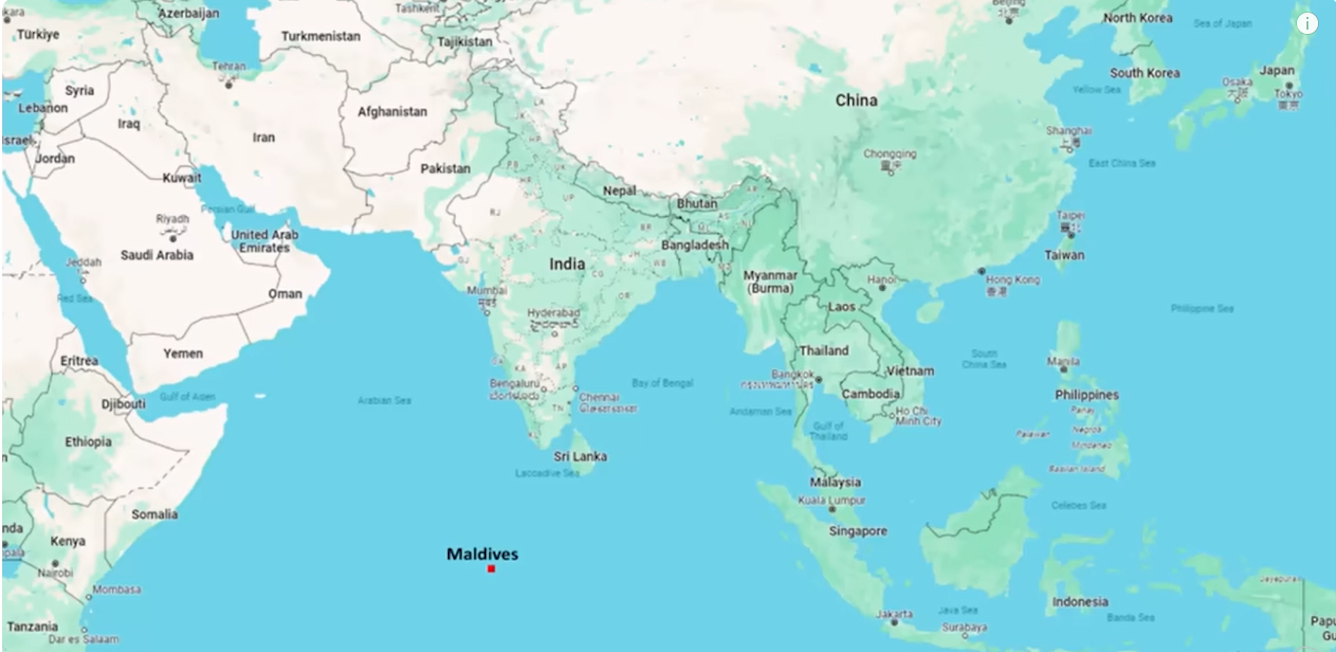
Further, the timing of the vessel's arrival is not mere serendipity. The Xiang Yang Hong 03 docked in Male on the same day as Indian and Sri Lankan coast guard ships, along with observers from Bangladesh, arrived for a scheduled trilateral naval exercise.
With the ship docking in Male, Beijing has gained another foothold in the Indian Ocean, almost making up for its lost privileges in Sri Lanka. Chinese vessels had started calling on the island nation's ports, purportedly for personnel rotation and replenishment, alarming New Delhi. After a Chinese military ship with rocket tracking and missile launch capabilities docked in Colombo in 2022, India had been pressing the island nation to revoke such privileges. New Delhi's diplomatic overtures prevailed, and Sri Lanka, earlier this year, announced a moratorium on foreign research ships entering its waters for a year.
But Xiang Yang Hong 03's arrival signals a shift in the geopolitical balance in IOR. Maldivian President Mohamed Muizzu, elected late last year, is heralding a new chapter in the island nation's international relations.
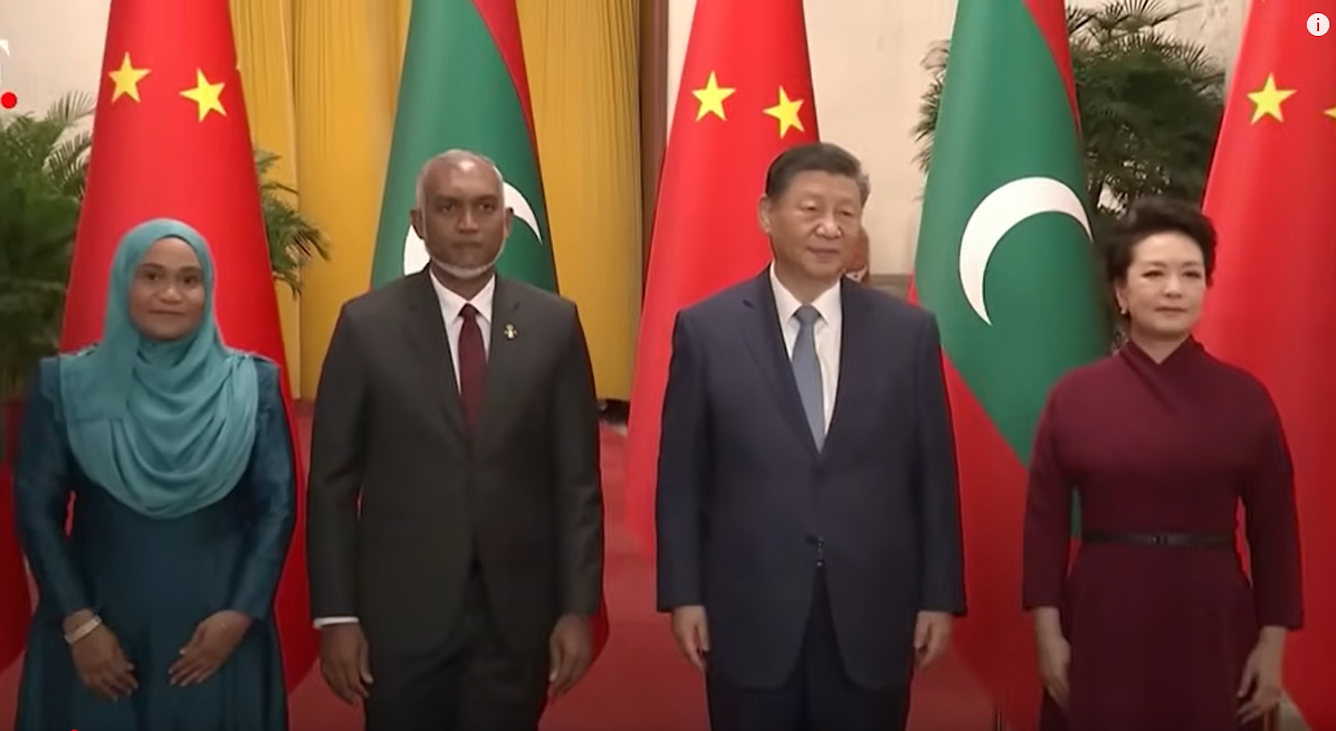
Overtly pro-China, he campaigned on an "India Out" demand, jeopardizing the close diplomatic and military ties between the two nations in the Indian Ocean. Unlike other Presidents, Muizzu's first state visit was to Beijing, not New Delhi. China reportedly offered 920 million yuan ($128 million) in "free aid" to the Maldives.
President Muizzu's government has stated that the Chinese vessel will not conduct any research within the country's maritime borders and will use the port only for personnel rotation and replenishment of supplies. But, with New Delhi preparing to withdraw Indian military personnel stationed on the island, per the Maldivian President's demands, the field is left open for China to create another strategic outpost in the Indian Ocean.

